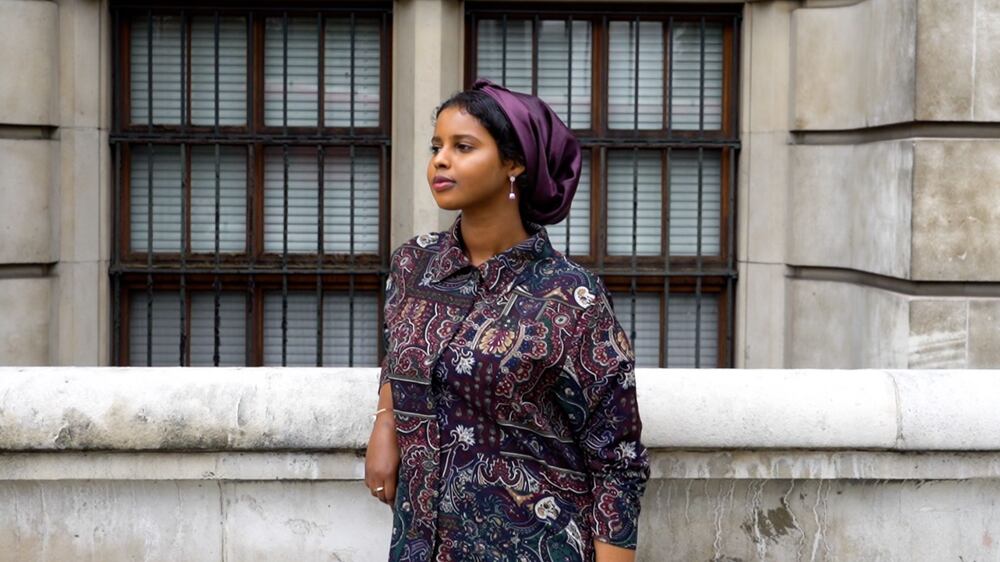London’s migrants contribute to the city’s creativity but a new “climate of hostility” towards refugees threatens this, said a poet whose work highlights the experience of diaspora communities
“The refugees who came to the UK in the past 10 to 15 years have experienced a real level of isolation,” said British-Somali poet Momtaza Mehri, 29.
“They have been made vulnerable by the decimation of the welfare state, by the economic conditions and the hollowing out of social services.”
And London’s existing migrant communities are left to pick up the pieces.
“A lot of refugees that are resettled in London benefit from the strong social fabric in their communities. There’s an openness and generosity, because so many people have already made a home here and created a base here,” said Mehri, who was named the young people's laureate for London in 2018.
In honour of Refugee Week, she will reveal a new poem on the theme of compassion, commissioned for the Southbank Centre.
“I’ve been trying to think through compassion, devoid of pity and paternalism, and define it in my own way. What I’ve come to and tried to explore in the poem is that a lot of compassion starts with self-compassion,” she said.
“[Compassion] can help refugees acclimatise to their new environment, and it is needed in a climate that is so hostile to refugees.”
Mehri hopes her poems will highlight a migrant experience that goes beyond the headlines.
“The refugee experience is often sensationalised. It robs it of the everyday feel of that experience,” she said.
“Communities that have experienced refugeehood have their inner lives, and the most interesting things about them actually have nothing to do with them being refugees.”
London is the city of exiles, said Mehri, pointing to how leading Arabic poets sought London as their base, including Iraqis Saadi Youssef, who passed away in 2021, and Ahmed Matar.
North-west London, where she grew up, felt like “a portal to the world”.
“It really opens you up to so many different sorts of influences from all over the world. It didn’t feel closed off at all,” she said.
Mehri was born in London and her poetry is defined by the Somali spoken-word cassettes that her father played in the car, the Arab poets that her mother loved, the English-language poets she discovered at school such as John Keats and Ted Hughes, and hip-hop.
While reading about the lives of canonical British poets, she also watched the American TV series Dej Poetry Jam, in which rapper Mos Def showcased spoken-word poets.
This “magpie approach” to influence is a reflection of the diversity of poetry itself, she said.
“There was a cross-fertilisation of different traditions [in English poetry]. I was really impressed by the efforts that a poet like Ted Hughes put into translation,” she said.
Her favourite place in the city is the Pergola in Hampstead Heath.
“It’s a focal point in London literary history,” she said, “It reminds me of the summers and swimming in the public lidos. It ties me to north London in an intimate way.”
Mehri’s upbringing was shaped by her immediate family and community, who fled conflict in their native Somalia.
“It’s just always been the background noise in my life. Many Somali families in the UK had quite a long-winded path to settling here,” she said.
“This kind of maze of movement, contributes to my sense of transnationalism. I get quite frustrated with provincialism and parochial world views.
“It’s a privilege to be in conversation with cousins in Cairo, Stockholm or Melbourne. I really love getting to know the world through the lens of various Somali diasporic communities globally.”
Her latest collection, Bad Diaspora Poems, parodies the writing cliches of poets in the diaspora.
“It’s these corny feelings like writing about mangoes and the motherland,” she said, recalling the poems she wrote as a teenager. “A bad poem about the diasporic experience is all angst and no criticality.”
Instead, Mehri has focused on the meaning of community – which she sees as both a safe haven and at times, an unwanted obligation.
“It’s a tortured relationship, as sometimes we’re in a community with people we can’t stand or hurt us,” she said.
She also explores the effect of trauma.
“What does a community mean after it has survived various fractures and eruptions, such as civil wars, displacement, and deep generational wounds?” she asked.
Yet the collection, which will be launched at the Shubbak Festival next week, has been described as a satire.
“It was quite heavy to write, but there’s an element of wit and humour,” she said.







